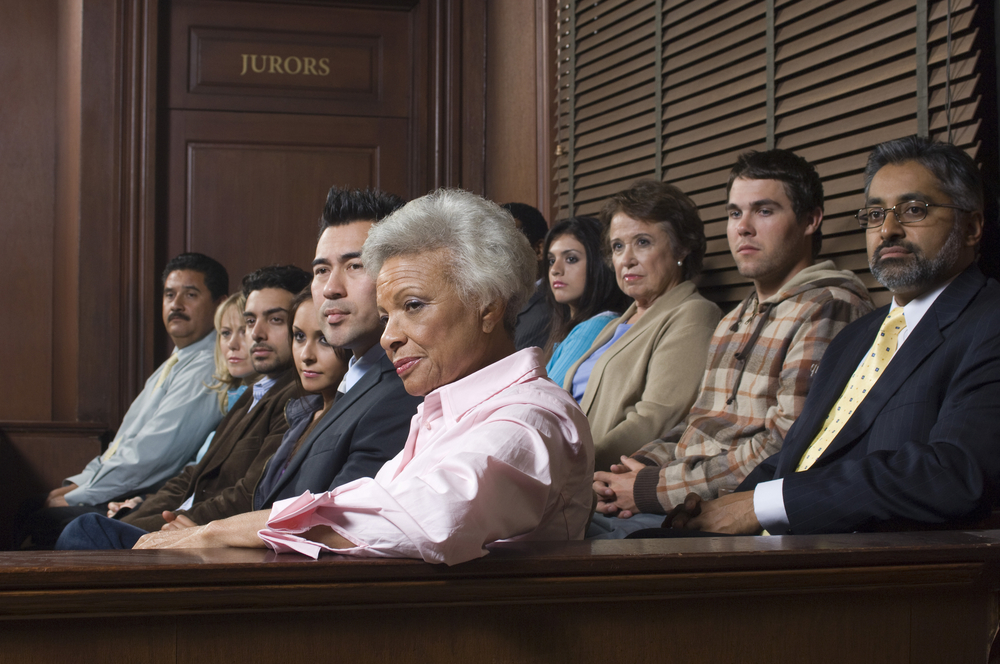5 Jury Selection Tips From a Discussion with Harry Plotkin

While not all personal injury cases go to trial, there’s one major contributor to the outcome of the ones that do: the jury. Jury selection is extremely important for your case, but it’s also one of the most challenging aspects of going to trial.
In Episode 2 of the Championing Justice podcast (hosted by yours truly), I got to talk to nationally recognized trial consultant Harry Plotkin about his tips and recommendations for getting a good jury.
“You could have the best case with the best lawyer and the most lovable plaintiff,” Harry said, “and if you have a bad jury, you’re going to get a terrible verdict.”
Below, I’ve elaborated on a few key insights from my discussion with Harry. To learn more about jury selection and hear everything Harry had to say, you can also watch the full episode of the podcast on YouTube here:
1. Ask the Right Questions in Voir Dire
Voir dire is your chance to get to know the potential jurors that will hear your case. Use it to your full advantage.
As Harry explained, you can use the questions you ask in voir dire to create a narrative that will give jurors a sense of what to expect in the trial, which also creates a chance for your to gauge their reactions to the details of the case before selection is finalized.
Harry also stressed the importance of asking open-ended questions in voir dire. It’s easy for jurors to answer yes or no questions in whichever way they believe will make them look more favorable (it’s human nature to want others to view us in a positive light). But if you ask them how they feel about a certain situation, or if they’ve ever experienced a unique circumstance, their answer, tone, and emotional reaction to the question gives you valuable information as to how they might respond as a juror.
2. Be Proactive About Keeping Good Jurors
While many lawyers take the approach of deselecting bad jurors, it’s important to know how to proactively keep good jurors, too. For this strategy to work, though, you may have to do a bit more explaining and interacting with potential jurors. Help them to see the difference between a bias and simply having a conscience, for example. Understanding the subtleties of such views can keep more jurors on the case who will connect emotionally with your client.
3. Don’t Give a Number Up Front
While Harry doesn’t subscribe to any hard-and-fast rules of jury selection, he did concede that it’s generally not in a lawyer’s best interest to state in voir dire the specific amount the lawyer may be seeking. One of the reasons Harry gives his advice is because he believes jurors are naturally suspicious about very specific numbers you throw out in jury selection when no evidence has been heard.
In addition, sometimes the evidence plays out differently at trial and the lawyer may want to adjust their damages ask upward, or downward.
That being said, Harry does advise lawyers to state in voir dire that they will be asking for “millions” or “many millions” of dollars to help weed out bad jurors who may be biased against large damages awards.
4. Don’t Rely on Jurors With Similar Injuries
While it may seem contradictory, attorneys can tell you again and again that, sometimes, the jurors who you think will have the most empathy for a plaintiff have the least. And this isn’t because those jurors are unfeeling, harsh people. In some cases, especially if a juror has gone through a similar situation in their own life, they may simply feel that, if they survived their ordeal, your client will be fine, too.
Interestingly, Harry said, it’s often jurors who couldn’t possibly imagine what your client has experienced who are some of the most empathetic:
“The people who are going to give the most damages are the jurors who can’t imagine what your plaintiff went through,” he said.
“If they’re good people and they have a conscience, they’re going to take a look at [your case] and say, ‘Oh my God, I can’t even begin to imagine what it’s like. Yeah, tens of millions of dollars.’”
5. Use the Right Words
When speaking to potential jurors, the words you use can have a surprising impact on how the juror views the case.
For example, Harry noted that he’ll rarely use phrases like “pain and suffering” or “emotional distress.” In his experiences, jurors tend to view these phrases as indicative of a complaining, whiny plaintiff. Rather, he suggested, using a phrase like “quality of life” can have a much more positive connotation.
Harry also advised that lawyers should not ask potential jurors if they have a “problem” with a particular issue. So instead of asking, “Does anybody here have a problem with….,” phrase the question differently. For example, you may want to ask a broad, open-ended question like “Who thinks it is unfair that….”
How Do You Pick a Good Jury?
At the end of the day, there is no precise formula for how to pick a good jury. However, by being aware of these simple tips and best practices, you can hopefully fine-tune your jury selection process.
To learn more about jury selection and hear the rest of my discussion with Harry, check out Episode 2 of Championing Justice on YouTube, Apple Podcasts, Spotify, or wherever else you like to listen. And, if you have jury selection stories or questions you want to share, send them to me on LinkedIn.
About the Author
Darl Champion is an award-winning personal injury lawyer serving the greater Metro Atlanta area. He is passionate about ensuring his clients are fully compensated when they are harmed by someone’s negligence. Learn more about Darl here.
